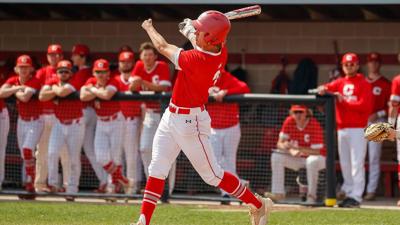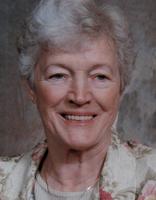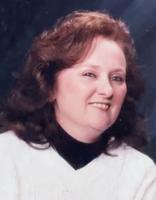PELLA — Colton DeRocher has built a life of solving the unsolvable, yet there's still one nagging question he can't answer.
Why baseball?
There are easier pursuits to tackle with only one fully formed hand.
"I'd ask my parents when I got older, how did I gravitate towards baseball?," said DeRocher, a Central College senior right fielder from Sioux City. "My mother wasn't really even an athlete and my dad raced motocross, so it wasn't really a traditional sports family.”
There was no reason to envision a future as a record-setting hitter for the Dutch, or selection to the Louisville Slugger Warriors, a nationally sponsored amputee baseball team, where his story will be shared in an upcoming documentary. Yet his fascination with the sport extends beyond his memory. He's told he was well-equipped with the usual assortment of toddler toys, yet only wanted to play with a small ball.
"I was infatuated with it," he said. "So apparently my grandpa spent all day once hunting down a glove, because a lefty glove is harder to find, especially for little kids. But he scavenged through the town of Sioux City and found one. After that, there was no separation. And then it was 'Sandlot' on 24/7.”
No "Sponge Bob" or "Barney & Friends" for DeRocher. "The Sandlot" was a 1993 baseball-themed coming-of-age film that provided the soundtrack to DeRocher's childhood.
"My dad can recite the whole movie just because I had it on all the time," DeRocher said. "Apparently, I was annoying family members because if I had 'Sandlot' on I was ok, otherwise I'd find somebody in the house to pitch to until they got tired and then I'd find somebody new and drag them out in the backyard. So, when everybody wanted a break, they'd put on ‘Sandlot.'"
DeRocher was born with a congenital defect on his left hand and a fierce determination to prove he belongs. That determination sometimes morphs into defiance, shaped less by what's missing from his hand than the extra chip on his shoulder. It's as though DeRocher innately chose baseball not in spite of it being among the most difficult sports to play with one hand but because of it. One could envision DeRocher being told he couldn't play catch with other toddlers and responding with a steely glare: "Hold my orange juice.”
"Even from a young age, I had the stubbornness of disliking not being able to do things that other people could do," he said. "So then for me it was like, I want to figure it out and be just as good, if not better. It was never, 'Dang, that's so easy for them, why can't I do that?' It was more find my own process to get it done.”
Watch DeRocher use his teeth in tugging a batting glove onto his right hand and it's evident that figure it out remains his mentality. And it works.
It's led him to the brink of setting Central's career home runs record. Since transferring to Central prior to the 2022 season, he has posted a career .368 batting mark through April 18, with a team-best 23 home runs and 116 RBIs while committing just six fielding errors in 102 games. He's one long ball away from tying Rick Hassman's school career home runs record of 24 (1986-89). A two-time all-region and first-team all-conference pick, DeRocher was named Central's team MVP last season. He's tied school records for most hits (5) and RBIs (6) in a game. His 50 RBIs in 2022 rank second on Central's all-time list. He's homered twice in a game three times.
Just as good, if not better.
Spikes crossing the white lines on the baseball field are DeRocher's entry into a world where he stands out not because of his disability but because of his ability, a phrase he first read around age 12 that became imprinted on his brain and is now tattooed onto his right arm. He firmly refused to let his story be told until, in his mind, he'd done enough on the field to prove it was warranted.
"I prefer just being a good baseball player rather than the player with one hand," DeRocher said. "It's one area where I can blend in to a certain extent instead of, like, 'Oh, he's got this wrong with him.' To the naked eye, unless you're looking for it, you more than likely won't notice unless you see me during my glove transition (from catching to throwing) in the outfield or you happen to catch a glimpse as I'm walking up to hit. It's kind of my time to feel normal.”
As coach Adam Carey, then an assistant, first studied the video, he didn't notice immediately, either. Casey Klunder, then Central's head coach, got a call from a colleague who had DeRocher on his squad at a college in Nebraska as a freshman, but didn't have room for him in the starting lineup. He recommended the Dutch take a look at him.
"He called us and said we have an outfielder who deserves to be on the field more," Carey said. "He's too good to sit on the bench.
"We took a look at his film and said, 'Wow, that's a great swing." After about the third swing we said, 'Wait, that guy's got one hand.' We called the coach and said, 'Hey, you didn't tell us this guy's got one hand.’
"He said, 'Take a look at his swing. Does it matter?' We're like, 'No, you're right.’"
Carey said he was an immediate fit for the Dutch.
"He's been a great member of the program and leader since the day he got here," Carey said.
Any impulse DeRocher had for self-pity was erased following a third-grade basketball practice when a coach instructed the players to practice dribbling with their left hand. That triggered a teary-eyed response from DeRocher.
"I came back to my car and was feeling sorry for myself," he said. "And then my dad got into me a little bit saying, 'If you don't believe in yourself, nobody else will. You've got to prove it to yourself first and then everybody else will follow.’"
It's a moment DeRocher references frequently.
"If you're not going to tackle an obstacle thinking you can get it done, than more than likely, you're not going to be able to get it done," DeRocher said. "You have to say, 'I'm going to tackle this. I'm going to find a way.’"
It can be a lonely struggle for a young boy but DeRocher occasionally found others who understood. As a youth, he met former Major League pitcher Jim Abbott, who was born with one hand.
"We talked about how he held his glove when he pitched," DeRocher said. "It was very eye-opening and a great feeling seeing somebody else with literally the same disability on that big of a platform throwing no-hitters.
"But in a stubborn way, I always knew I didn't want to be a pitcher. It's cool and I admire him. But I wanted to find my own avenue on the hitting side.”
DeRocher was growing convinced he could play. To reinforce the message, his father produced signs with the word "Believe" and placed them strategically around the house.
"It was hanging up in the kitchen, it was hung up on the top of the stairs when I'd come up to my room, my dad kind of put it everywhere to throw it in my face," DeRocher said. Eventually, DeRocher had the word tattooed on his chest.
"You have to be fully bought in that I'm going to attack this, I'm going to find a way and I'm going to get it done," he said. "And if you think, oh well, they don't believe in me so I can't do it, you're not going to get it done.
DeRocher discovered that one path to instant credibility in a two-handed world is to hit home runs, and he has a rare gift for doing that. Still, going to youth baseball showcases where players flash their skills in hopes of impressing coaches was initially intimidating.
"If it was an invitation-only showcase, a lot of times people thought I was a pity invite and I'm showing up with a bunch of kids I don't know," he said. "And, of course, nobody wants to play catch with me and, experiencing that, you're 14, 15 or 16 and you're already nervous and then you have to deal with that. But luckily you always start off with batting practice and after I put a couple balls over the fence, everything quickly changes. Everyone's like, 'Dude, I'm not going to lie. I thought you're just kind of here to boost your spirits.' So that was always rewarding when you got that recognition from players you've never played with.”
After starring at Sioux City East High School, then playing in Nebraska, DeRocher's bat earned him a reputation by the time he arrived at Central. But there was still awkwardness when first meeting his Dutch teammates.
"There's definitely some hesitancy and it's kind of intimidating because you never know how they're going to react," DeRocher said. "If someone is curious, I'm glad to answer any questions about it. Obviously, if someone was making fun of it, I may bark a little bit. But coming in here, the coach had already given everybody a decent idea. Everybody's just more curious what it actually looks like, not, 'Can he even do this?’"
In DeRocher, Carey initially saw a player in protection mode.
"When he came in, he was in a little circle with tall walls," Carey said. "He'd let people in once they show him that they can be trusted. And now he's become a lot more open. He's always looking for a reason to help somebody. And that's something I did not expect out of him when he got here two years ago. Seeing that growth has been awesome.”
Carey has seen DeRocher's confidence rise as his batting average did. After only seeking acceptance, he grew to command respect.
"Now, it's 'I've got an advantage,'" Carey said. "'I've got more bat speed, my bat is whippy, I can do as much and probably more than most of you.' And that makes the guys around him better, too. That's a characteristic that he has that I think gets overlooked. What he does to make the people around him better, that's what truly great competitors and leaders do.”
And Carey values DeRocher's leadership as much as his bat.
"His style of leadership is not the type where he's going to bring the whole team in and say, 'Hey, we've got to do this,'" Carey said. "His style is he sees you doing something the wrong way, he's going to put his arm around you and say, 'Tell me your thought process behind this.' Or, 'OK. I see you're frustrated here.' He's got a freshman on the team that he's working with always. And if he's struggling with something, Colton will walk up to him and say, 'Walk me through your at-bat.' And he'll help him with his approach and with his mindset within that approach. He's going to be a really successful coach if he chooses to be one.”
But it was the playing ability that generated the opportunity with the Louisville Slugger Warriors. Taking on Vassar College (N.Y.) in a spring-break game in Florida last year, DeRocher homered off Michael Came, also a pitcher on the Warriors who wears a prosthetic leg.
"After the game, the kid walked up to him with the ball, pulled his pant leg up and said, 'Hey, nice hit,'" Carey said. "They took a picture together and got to know each other a little bit and I think that one interaction really changed his life, in a way. It gave him that opportunity to join the Louisville Slugger team. And it helped him realize he's not alone in this. He's not the only person with exceptionalities playing at our level. So that opened his eyes a ton. And I think those things made him more open to talking about it.”
DeRocher joined the squad in July for a pair of games in Burlington, Vermont and in September in Las Vegas.
Louisville Slugger Warriors general manager David Van Sleet worked with the Department of Veterans Affairs on prosthetics for 30 years and started the team after he retired. The coaching staff includes former professional players including head coach Curtis Pride, who was born deaf and played 11 seasons in the major leagues. The team includes military veterans, active duty personnel and current and former amputee college baseball players. The current team has six military veterans who lost limbs in combat while other team members have birth defects and were in accidents.
"That's the first time I went to a group of dudes who are all on the same level, whether it's with amputations, birth defects or whatever," DeRocher said. "It's a humbling experience because I'm playing with a dude who lost his leg because it got blown off by a bomb. And he re-learned everything and became just as good as he was before. That kind of puts it into perspective the minute that I think I have it rough.
"It's definitely a fun, free-flowing environment. Everybody feels welcomed and fits in. At the same time, it's humbling, realizing, wow, I still do have it better than most.”
The players' similarities extend beyond body types. Most are wired like DeRocher.
"These are 12, 15 alpha dogs who have gone through more than what most people can imagine," pitcher Matt Kinsey, a former Army sergeant and infantry paratrooper, told The News Press in Cape Coral, Florida.
It also allowed DeRocher to develop a close connection with Parker Hanson, who starred at Augustana College (S.D.) in Sioux Falls, not far from DeRocher's Sioux City home. Hanson, who is three years older and plays with a prosthetic arm, had a short minor league career.
"I call him big brother," DeRocher said. "Being in contact with a dude like that who had a great career at the Division II level and then even playing pro ball a little bit before a different injury set him back. To play alongside a player like that, where he reached heights that I still hope to eventually get to, it's definitely inspiring.”
The two have even roomed with each other while with the Warriors.
"He's a younger version of me," Hanson told The News Press. "Same personality. When I was his age, I was a little brash as well. The first time we met, we hit it off. Big brother, little brother. We try to one-up each other and we do it with nice, friendly smack-talking.”
The team gathered at Florida Gulf Coast University in January to film a documentary called "Curveballs," that is expected to be released later this year. Filming will conclude when the team returns to Fort Myers for a game at the Boston Red Sox spring training facility June 1.
Playing with military veterans had perhaps the biggest impact on DeRocher.
"I think it helped his perspective a lot," Carey said. "These guys were fully able-bodied people a lot of their lives and now they're learning how to live without this. He realized, 'Hey, I need to keep the mindset that I have, but at the same time, I have to understand there are a lot of people out there that have it worse than me.' I can absolutely see that change in him.”
DeRocher has proven he belongs. But he still plays with the edge of someone trying to convince others of that. As the number of doubters dwindles, he almost seeks them out, thirsting for the fuel that propels him.
"Oh, yeah, he's got that," Carey said. "You hear Michael Jordan saying, 'Oh, I took this, this and this personally every time.' Colton's very much that way, where you say something and he's like, 'What do you mean by that?' You know, give me a reason right now. It just drives him.”
DeRocher doesn't deny the need for an edge.
"It's one of those things where you have no choice but to build up your self-confidence probably even a little higher because of what you are dealing with, especially athletically because everybody assumes I'm probably going to not be as good," he said. "You have to have that chip on your shoulder because, especially at the beginning, you're the only one to believe in yourself. A lot of people thought I wouldn't even start on a high school team and I ended up being a four-year letterman and three-year starter. And then it was, it won't happen in college. And now, here I am, and it's all because of insanely built-up self-confidence. And that also goes along with the work you've put in behind the scenes along the way.”
Some wonder if what's missing from his hand is less significant than the fire its absence generates within. DeRocher has pondered life with two hands and how much it would have helped--or hurt--his career.
"Obviously, you're always going to have that what-if conversation," DeRocher said. "I would have figured out a lot of things sooner. Like, I didn't get a weightlifting hook until I entered college. If I had two hands, I could have started my weight training process a lot sooner and I could have filled out a lot sooner. But I don't completely disagree (that he's more motivated) in talking about the stubbornness aspect. That definitely did add a chip on my shoulder that helped get me where I am.”
But make no mistake, while DeRocher has gifts, he has earned his way with his work ethic. And one of the things he loves about baseball is that when the first pitch is thrown, it's his ultimate chance to prove it.
"Everything behind the scenes finally gets shown," he said. "I get to show that no matter how I'm perceived, I'm just as good if not better than anybody else I'm sharing the field with and nothing's going to stop me or slow me down.”
Increasingly, however, DeRocher is finding even greater rewards than proving himself in seeing how he can use the game to impact others. It's become his mission.
During last year's final weekend series on the road, he noticed an autistic boy intently watching each game. DeRocher homered in the last game and afterwards the boy's father asked if he could meet him. The boy was quickly ushered into the Central dugout.
"He was real timid but he wanted to say hi and asked me questions," DeRocher said."That was definitely a moment where like, dang, you truly never do know who is watching.
"It really makes you sit back and realize I'm not just playing a game. It's not just the media outlets writing stories that people are reading. People are actually showing up and getting that inspiration from me in person.”
Others have have sought out DeRocher after games, drawn to his story because of how it relates to their own lives. Carey savors watching those moments.
"I think it helps him realize that there are more eyes on him than he thinks," he said. "And I think it really lifts him up when those people come in and talk to him saying, 'Hey, my son's going through this, are you willing to meet with him?' He'll say, ‘Absolutely.'"
That's the biggest reason DeRocher want his baseball career to stretch beyond his time at Central, in whatever form that takes.
"Any minor league contract would be the greatest thing," he said. "But even if none of that happens, I still have the platform with the Louisville Slugger Warriors to continue to inspire and hopefully the documentary will reach a lot more.
"I'll stay close to the game. I plan on doing some level of coaching or personal training after graduation. I'll never leave the game and I'll never stop telling my story. And I've been blessed enough to get the platform to keep spreading it for a while longer.”
DeRocher has proven to others what he can do. And long ago he learned to appreciate all that he's been given.
"At the end of the day, like what do I really have to complain about?," he said. "I'm not disabled. Nobody has to help me with anything. There are always those stories on ESPN where kids are in wheelchairs or have cancer and all this and that. So, if I'm missing a few fingers and I'm still able to do everything I love, I can't really consider myself disabled. I'm still pretty able.”
As it turns out, maybe baseball was the perfect choice for a determined Sioux City toddler with a congenital defect on his left hand. It's a sport ingrained with the challenges that mirror those he faces daily and one that helps show him a path forward, to a life where he's not just normal, but more.
"It's a very humbling game," he said. "I love that it definitely puts things into perspective. The game is completely built on failure and it kind of relates to my life where I'm failing a lot more than I succeed, especially when I'm trying to figure something out. Like, what took me the longest to learn was tying my shoes. And then the little times you do succeed make it that much sweeter. So it's just finding your own process, finding your own way. I think that's honestly what's kept me in love with baseball more than other sports. I'm considered elite if I get three hits out of 10 at-bats, right? It's a game built on failure and I've had to overcome obstacles my whole life.”
Just as good, if not better.



















Commented
Sorry, there are no recent results for popular commented articles.